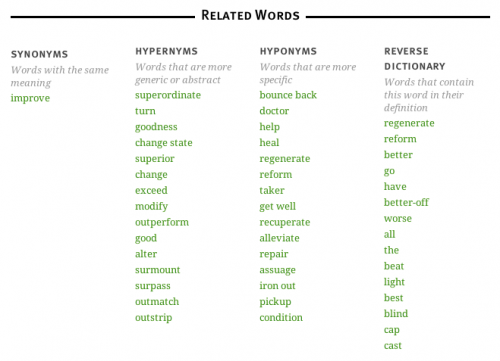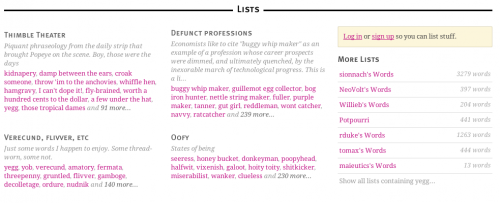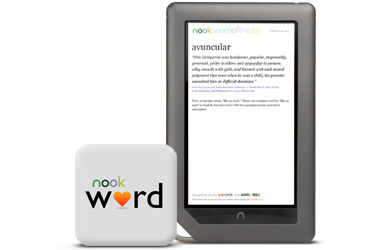In honor of tomorrow’s All-Star Game, we’re happy to announce a new word-of-the-day list from Paul Dickson, the author of The Dickson Baseball Dictionary, Third Edition (and more than fifty other books)!
Why are baseball words so hugely entertaining (even if you’re not a hard-core baseball fan)? Paul puts it best:
Baseball is a metaphoric circus.
The game has a particular infatuation with what one critic of sportswriters termed “the incorrect use of correct words.” There are hundreds of examples, but the point can be made by simply listing a selection of synonyms for the hard-hit ball or line drive. It is variously known as an aspirin, a BB, a bolt, a clothesline, a frozen rope, a pea, a rocket, and a seed. A player’s throwing arm seems to be called everything but an arm: gun, hose, rifle, soupbone, whip, and wing, to name just a few. The arm is not the only renamed body part. From top to bottom, players have lamps (eyes), a pipe (neck or throat), hooks (hands), wheels (legs), and tires (feet).
So many allusions are made to food and dining, including pitches that seem to fall off the table, that a fairly well-balanced diet suggests itself in terms like can of corn, cup of coffee, fish cakes, banana stalk, mustard, pretzel, rhubarb, green pea, juice, meat hand, grapefruit league, and tater. Among the many terms for the ball itself are apple, cantaloupe, egg, lemon, orange, pea, potato, and tomato. Implements? There is the plate (also known as the platter, pan, and dish) and, of course, the forkball. Dessert? The red abrasion from a slide into base is a strawberry and the fan’s time-honored sound of disapproval is a raspberry.
The game proudly displays its rustic roots and there is a tone to the language of the game that is remarkably pastoral. If any imagery dominates, it is that of rural America. Even under a dome, it is a game of fields and fences, where ducks [sit] on the pond and pitchers sit in the catbird seat. New players come out of the farm system and a farm hand who pitches may get to work in the bullpen.
You can sign up to receive Paul’s baseball words here; and if you have a Nook Color, we’ll be featuring baseball words this whole week via the Wordnik Nook Word of the Day app! [Want a hard copy of the Dictionary? You can find one at any of these fine booksellers.]
We hope you enjoy exploring this rich slice of English … and if you’ll be in Pasadena, CA this Sunday, the 17th of July, you can also see Paul Dickson at the Baseball Reliquary, where he will be presented with the 2011 Tony Salin Memorial Award for his commitment to the preservation of baseball history.



